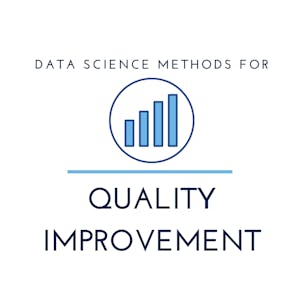In Managing, Describing, and Analyzing Data, you will master the fundamentals of data understanding and classification, essential for informed decision-making. This comprehensive course covers the basics of descriptive statistics, graphical representation using R software, probability distributions, and sampling concepts for statistical inference.
Throughout the course, you will delve into key topics such as data measurement, graphical and numerical data description, probability and probability distributions, sampling error and estimation, and hypothesis testing. The hands-on approach, coupled with real-world applications, ensures a practical understanding of data analysis.
Certificate Available ✔
Get Started / More Info
The course comprises five modules covering data measurement, graphical and numerical data description, probability and probability distributions, sampling error and estimation, and hypothesis testing.
Welcome to Managing, Describing and Analyzing Data. This module introduces data measurement, scales, and the process of measurement. You will also explore sampling concepts and learn to work in RStudio.
The second module focuses on describing data graphically and numerically. You will learn to create various graphical representations, measures of central tendency and dispersion, and measures of relationship and shape.
Module 3 delves into probability and probability distributions, covering topics such as the binomial, Poisson, normal, and exponential distributions, and their applications in data analysis.
Sampling distributions, error, and estimation are the focus of the fourth module. Topics include sampling error, central theorem, confidence intervals, and estimators, providing a foundation for statistical inference.
The final module covers two sample hypothesis testing, exploring significance levels, types of errors, power calculations, and various tests for means, proportions, variances, and poisson counts.
This program provides a solid foundation in probability theory and statistical inference, essential for data science. It equips learners with the skills to perform...
Advanced Linear Models for Data Science 2: Statistical Linear Models provides a comprehensive understanding of least squares from a linear algebraic and mathematical...
Learn to forecast US Presidential Elections using mixed effects models in R, exploring voting trends and building a forecasting model for the 2020 election.
Discover the power of statistics in data science and gain practical skills in descriptive statistics, probability, sampling, confidence intervals, and hypothesis...